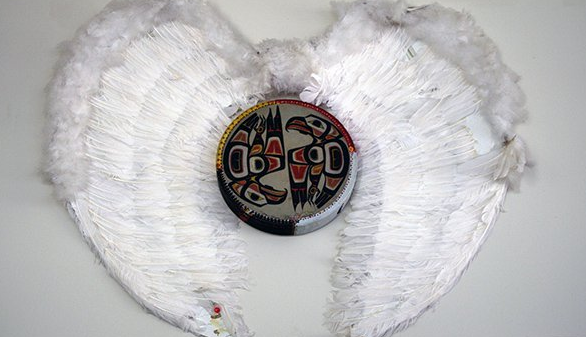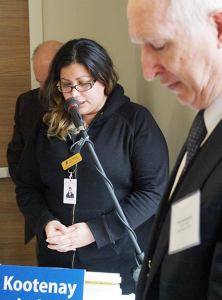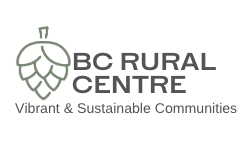
Ktunaxa Nation: Ensuring the most vulnerable citizens can succeed
For the Ktunaxa Nation, a key pillar of the community is supporting its most vulnerable citizens. It’s an effort that is changing lives for the better.
Ktunaxa Nation has grown its Cranbrook-based social services from its Operation Street Angel program to include both a support house for youth transitioning out of foster care, and a house to support people either waiting for or returning from treatment for substance abuse.

Debbie Whitehead
“There is clear vision from our leadership: that every citizen counts. We build programs to meet the needs of individuals,” said Debbie Whitehead, director of the Ktunaxa social investment sector. “The vision of the Ktunaxa Nation Council begins with strong, healthy citizens, and the social sector is vital to health and well-being.”
Now in its seventh year, Operation Street Angel provides services to homeless and at-risk people in the Cranbrook area, including mental-health and substance-use counselling and referrals, harm reduction, street outreach, hot meals, advocacy, and employment and justice services.
People using Operation Street Angel have access to the Ktunaxa health team, which includes nurse practitioners, a community-health nurse, a dietician and an exercise therapist. The program helps 50 to 60 people per week, both Indigenous and non-Indigenous. Operation Street Angel also has evening outreach — a “night advocate” helps the community’s most vulnerable people.
“The night advocate is out until one or two in the morning,” Whitehead said. “The night advocate patrols the streets, connecting with people living on the street.”
Shannon Girling-Hebert, administrator of quality assurance and service integration for Ktunaxa Social Sector, said Operation Street Angel is both saving lives and reducing impacts on local emergency responders.
“The RCMP report a 65% reduction in petty crime and street injuries. The ambulance has fewer calls to people living on the street. The emergency room has significantly less non-emergency situations with vulnerable people,” Girling-Hebert said.
Two years ago, Ktunaxa Nation purchased a 16-bed residential home in Cranbrook called Scotty’s House, which supports young adults who have aged out of foster care, as well as offering housing for single Elders. Six young adults have been through the house so far.
“Some kids leave foster care and need independent support. The concept is shared living space for vulnerable adults. We use traditional knowledge and Elders, and help with skills, education and training. Elders are able to mentor the kids in Indigenous ways, and it’s open for Elders in need to live there. It’s a really good mix,” Girling-Hebert said.
“We’re focused on the Aboriginal population at Scotty’s House, but if a bed is available, no person would be turned away,” Whitehead said. “The need is there for the Aboriginal and other vulnerable adults.”
Girling-Hebert said a large number of Indigenous youth will age out of foster care relatively soon. “The Ktunaxa Nation wants to ensure these young Aboriginal people will be successful after foster care,” she said.
Late last year, Ktunaxa Nation opened its four-bed Mary Basil Recovery House to support Indigenous people either waiting for, or returning from, treatment for substance addictions. People can stay for up to six months, and are supported by life-skills workers. Three people have graduated so far.
“People need support while waiting for treatment, or when they complete treatment, and need assistance reintegrating into the community,” Girling-Hebert said. “People in recovery can connect with their culture, regain life skills, and access what they need in the community.”
The house is named after Mary Basil, an elder from Lower Kootenay Indian Band. In the 1970s, she was a driving force behind encouraging a sober, healthy community — Mary attended the grand opening of the facility.
A majority of Ktunaxa services are thanks to strong partnerships forged with the Interior Health Authority, the First Nations Health Authority, the City of Cranbrook, and local businesses, such as Teck Resources. The local Home Depot hosts an annual fundraiser for Street Angels. Ktunaxa social sector also works closely with non-Aboriginal service providers in the community.
“We’ve had the community come together. The church community provides AA (alcoholics anonymous), there’s therapy sessions and sweat and smudging sessions, Operation Street Angel and Aboriginal culture programs,” Whitehead said. “It’s a partnership in Cranbook for sure.”
